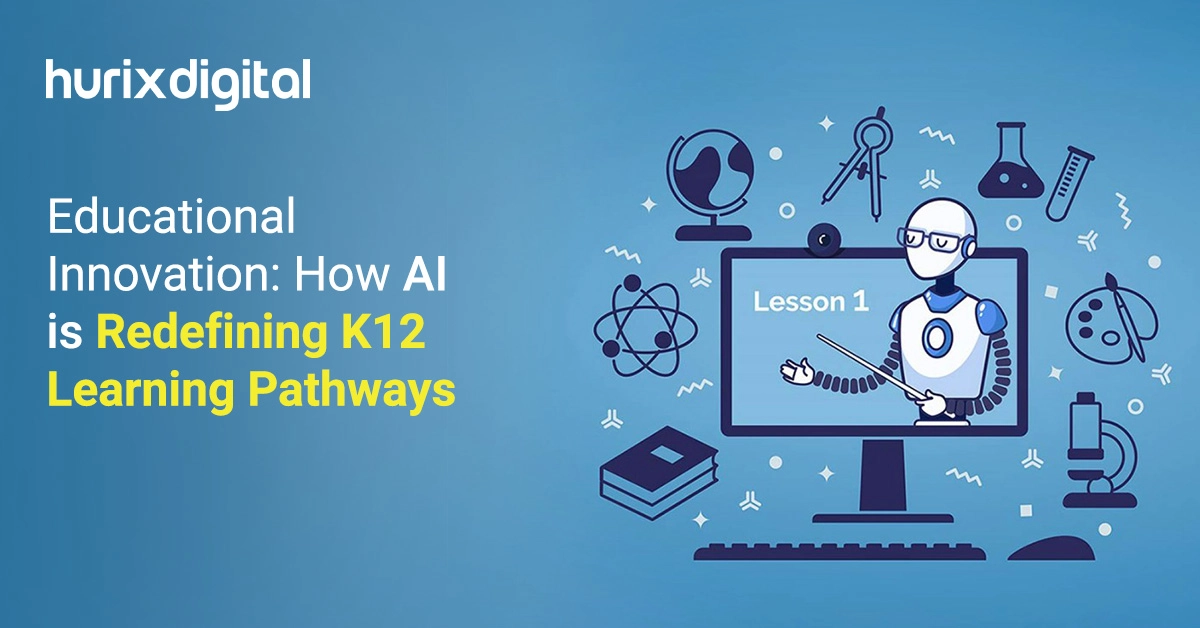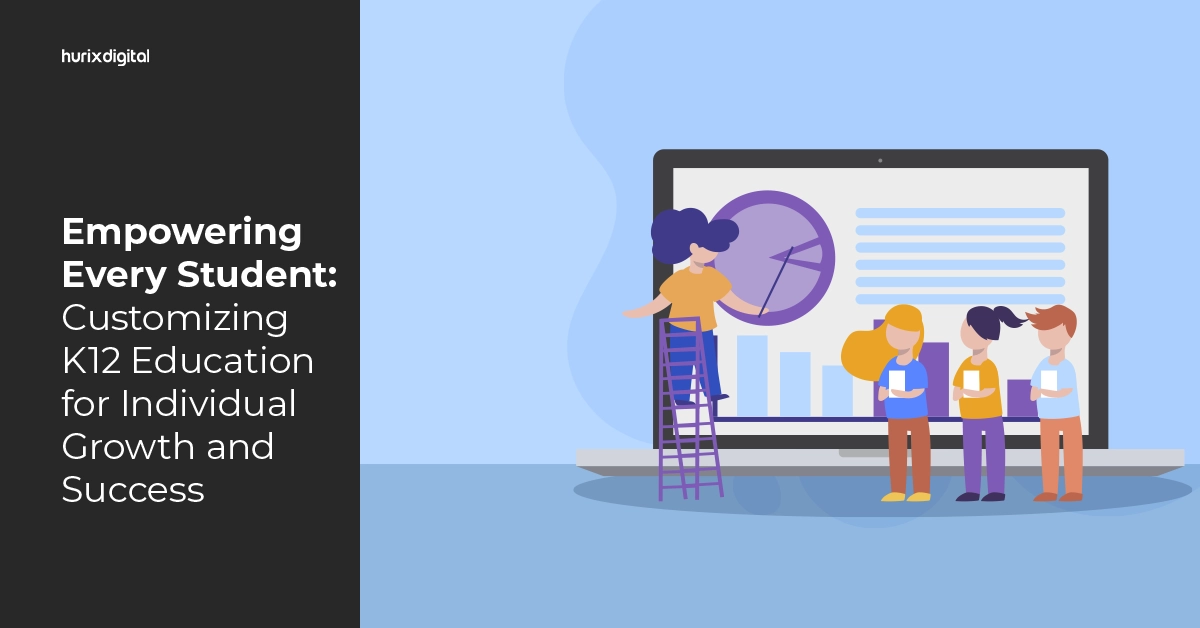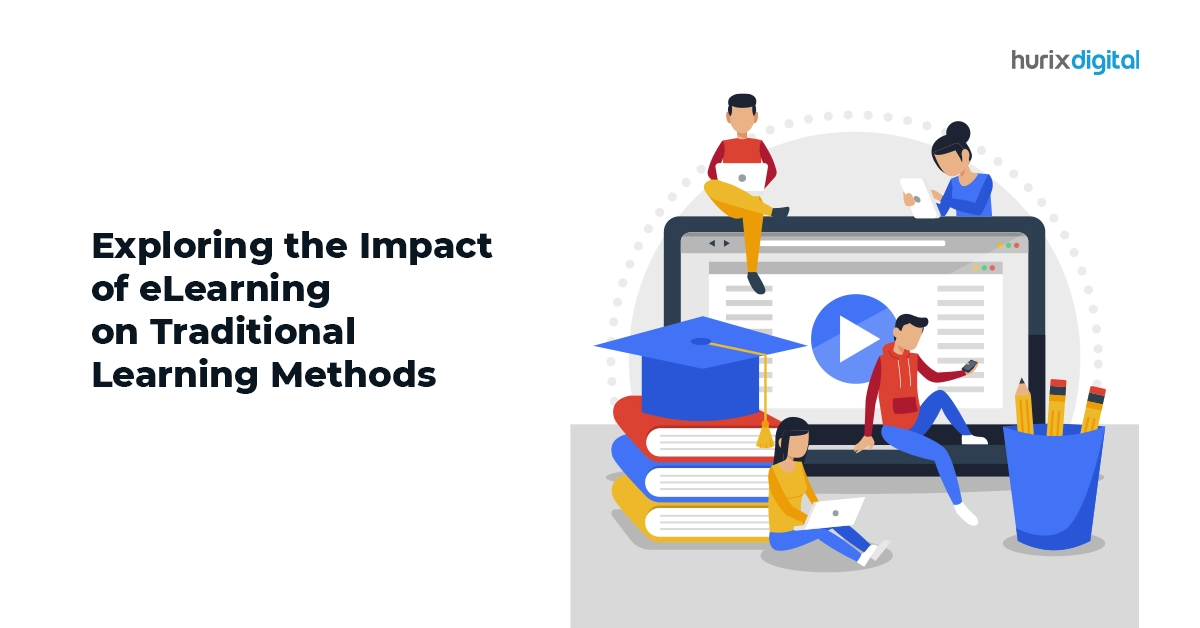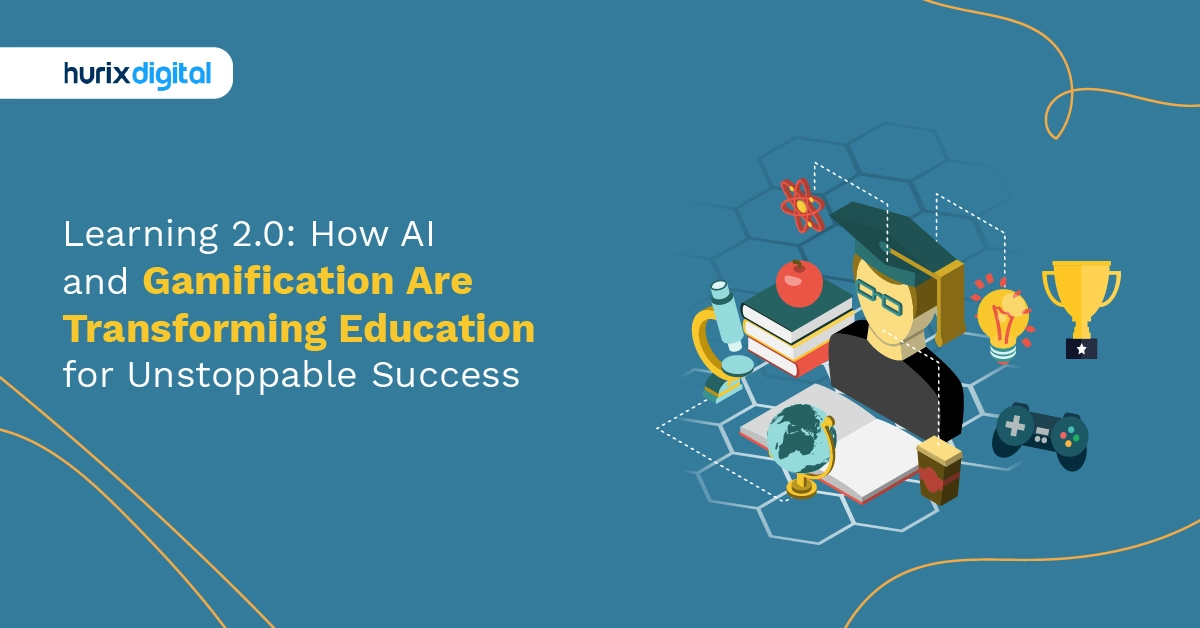
Educational Innovation: How AI is Redefining K12 Learning Pathways
Summarize with:
Artificial Intelligence (AI) in education is currently one of the most powerful forces to modify educational paradigms, having undergone a significant shift in the digital age. This is particularly true in the K12 domain, where artificial intelligence is revolutionizing education.
The global market for artificial intelligence in education brought in US$4.1 billion in revenue in 2023, and it is projected to increase at a compound annual growth rate (CAGR, 2023–2030) of 36.0% to reach US$32.3 billion by 2030. This innovative technology redefines how educational content can be given in a way that is significantly more individualized and adaptive than just automated.
AI plays a viable role in the teaching and learning processes within K12 sectors. Tools like adaptive learning platforms, AI tutors, and educational bots support teachers and provide students with real-time feedback about their learning journey.
Read on to discover how AI is revolutionizing K12 education, offering personalized learning experiences, enhancing classroom engagement, and reshaping traditional teaching methods.
Table of Contents:
- The Role of AI in Modern K12 Education
- Benefits of AI for K12 Education
- Challenges in AI Implementation for K12 Education
- Preparing for the Future: Integrating AI into School Curricula
- Wrapping Up
The Role of AI in Modern K12 Education
AI is swiftly becoming an integral part of the educational fabric, particularly in K12 settings where its impact is both transformative and multifaceted.
According to Forbes, over 47% of learning management tools now incorporate AI functionalities, which significantly enhance educational delivery and administration. This integration signifies a major shift towards K12 digital transformation, making educational experiences more engaging and personalized.
An example of this is Carnegie Learning’s MATHia software, which boasts improvements in math scores among K12 students. Similarly, AI tutors, such as those developed by Century Tech, provide:
- Personalized tutoring sessions.
- Leveraging data to pinpoint students’ strengths and weaknesses.
- Effectively supporting AI for student success.
In this regard, heads of online learning and education administration are increasingly looking to integrate AI tools to enhance educational outcomes and streamline administrative tasks. These tools aid in routine classroom management, freeing teachers to focus more on pedagogy. It also helps to make learning continuous, data-driven, and closely connected with AI applied within school curricula.
Benefits of AI for K12 Education
The integration of artificial intelligence into K12 education presents several transformative benefits that cater specifically to the needs of today’s digital learners and educators:
1. Personalized Learning Experiences
AI technologies stand out in their ability to create highly personalized learning paths for students. Few learning platforms use AI to adapt lessons based on a student’s responses and learning speed.
2. Enhanced Student Engagement
AI also plays a crucial role in boosting student engagement. Tools equipped with gamification elements and interactive content can turn traditional lessons into more engaging learning experiences.
3. Efficient Progress Tracking
With AI-powered education tools, educators can now track student progress in real-time with far greater accuracy than traditional methods. Tools like IBM’s Watson Education, for instance, analyze data points from student interactions to provide educators with detailed insights into learning patterns. This helps to identify areas where students might be struggling.
4. Feedback and Adjustments
AI tools keep students engaged and motivated by providing instant feedback. This immediate response to their inputs makes learning more interactive and less of a passive experience. Students are more likely to stay interested when they see that their actions have direct consequences on their learning journey.
Also Read: Developing K12 Education Guidelines for Artificial Intelligence
Challenges in AI Implementation for K12 Education
The introduction of artificial intelligence into K12 education, notwithstanding all its promises, faces several challenges and ethical considerations:
- Data Privacy Issues: Since AI systems require bulky data to function ideally, the problem of student data privacy arises at the top. Safeguarding such data from all sorts of breaches dictates great care in data protection and open data use policies.
- Ethical Issues: The same application of Artificial Intelligence in education will, however, come with ethical issues, most importantly regarding bias and fairness. Such systems could actually continue the existing biases. This has to be managed correctly so that the algorithms within an AI system are transparent and open to audits for bias at regular intervals.
- Bridging the Digital Divide: The digital divide remains a serious challenge when students hailing from under-resourced communities have slightly less access to AI-driven tools.
- Comprehensive Training: Effective AI integration demands that educators undergo comprehensive training. Without proper knowledge and skills, educators may struggle to utilize these technologies effectively.
- Ensuring Inclusive Technology Access: Another major challenge is developing strategies to ensure equitable access to technology. All students must have the necessary resources to benefit from AI advancements.
Preparing for the Future: Integrating AI into School Curricula
Successfully embedding AI into K12 curricula necessitates developing an implementation strategy and taking a close look at the ways the technology empowers educators:
- AI Strategic Integration: Schools should first identify the key areas in which AI can be applied to their curriculum, personal learning paths, or automated grading systems. Strategic AI integration will enable schools to enhance educational productivity, which will be achieved through reduced administrative costs and improved learning outcomes.
- Training of Educators: At the heart of Artificial Intelligence in education is the thorough training of educators. Educators are required to be armed with technical knowledge and pedagogical insights to use AI tools properly. A report shows that 60% of districts will have trained teachers to use AI.
Heads of online learning and education, in general, are focusing on strategic AI integration into school curricula to leverage its transformative potential effectively.
This approach involves several key steps:
- Finding Applications for AI in Education: Educational institutions must identify the precise domains in which AI may improve current procedures, such as data-driven insights into student performance, automated grading schemes, or tailored learning pathways.
- Educator Training: To guarantee that educators can use AI tools efficiently, training is essential. In order to effectively incorporate AI technologies into teaching practices, this training should cover both pedagogical strategies and technical abilities connected to these technologies.
- Increasing Educational Productivity: Schools can increase educational productivity by carefully integrating AI. This includes improving learning outcomes by offering individualized educational experiences and lowering administrative responsibilities through automation.
Overall, integrating AI into K12 curricula requires a thoughtful approach that considers both technological capabilities and educational objectives, ensuring that AI enhances rather than replaces traditional teaching methods.
Also Read: AI in the K12 Classroom: Enhancing Personalized Learning, Engagement, and Assessment
Wrapping Up
The induction of artificial intelligence into education, including K12, is not a revolution anymore but rather an innovation that would transform learning environments all over the world.
AI personalizes learning experiences, enhances student engagement, and streamlines administrative tasks; hence, it allows for a much more inclusive, effective, and interesting educational system. As we stand on the brink of this transformative era, the opportunity for educational leaders to pioneer these advancements is immense.
To explore how AI can redefine your educational strategies and contribute to the success of your institution, visit Hurix Digital today. With cutting-edge technologies and expert solutions, we make sure your institution stays ahead in integrating AI for education, enhancing learning outcomes and student engagement.
Connect with us to learn more!
Summarize with:

Senior Vice President
A Business Development professional with >20 years of experience with strong capability to sell new solutions and develop new markets from scratch. New Market Entry Specialist with experience working in the largest emerging markets. Exceptional experience in conceptualizing, ideating and selling new learning technologies like VR AR, etc. across multiple industry verticals.
 Upcoming Masterclass | Build an Army of Brand Evangelists using Training & Development | November 20th, 8:30 AM PDT | 11:30 AM EDT | 10:00 PM IST
Upcoming Masterclass | Build an Army of Brand Evangelists using Training & Development | November 20th, 8:30 AM PDT | 11:30 AM EDT | 10:00 PM IST




